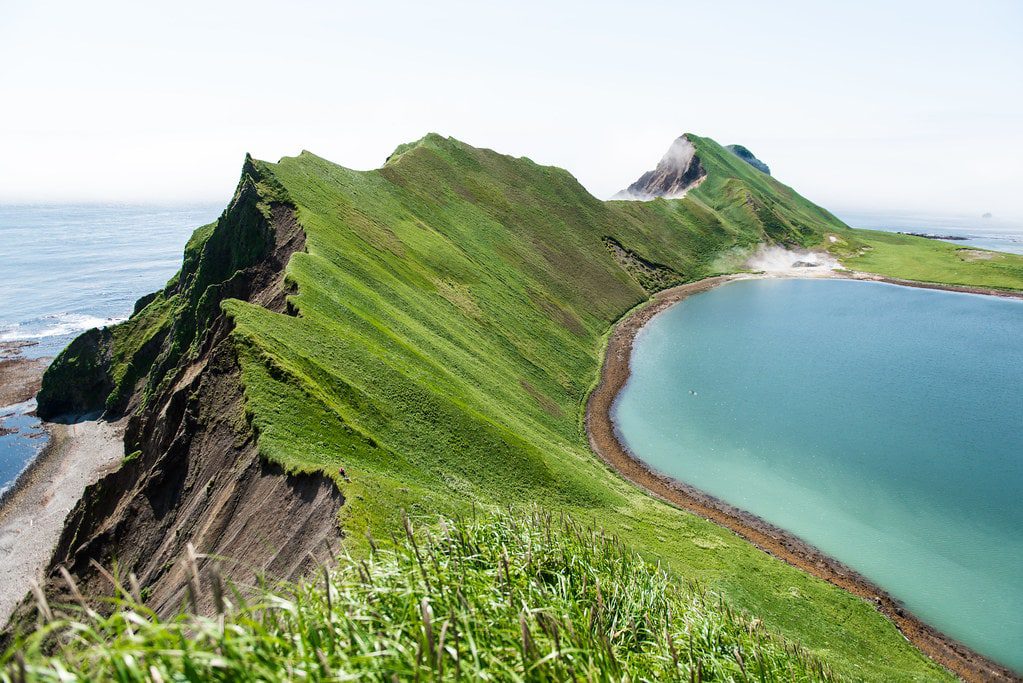
The Russian-Ukrainian conflict is resurrecting other clashes over territorial sovereignty elsewhere in the world. Japan is taking advantage of the Ukrainian opportunity to make its claim to the Kuril Islands archipelago heard again, which it has disputed with Russia for more than 70 years.
The Kuril Islands are an archipelago of volcanic islands located between the Sea of Okhotsk and the Pacific Ocean. They have been the subject of dispute between Japan and Russia and have prevented the signing of a peace treaty between the two states since the end of the Second World War. At the end of the war, Stalinist Russia annexed four of the islands. The “South Kurils,” so-called by the Russians, are described as “Northern Territories” by the Japanese, who still intend to recover them. Skirmishes between Russian and Japanese fishermen are regular. In the summer of 2021, the Russian government announced its intention to create a free trade area on these islands to stimulate economic development. Russian Prime Minister Mikhail Mishustin’s visit to the islands led to a strong Japanese protest and the summoning of Russian ambassador Mikhail Galuzin to Tokyo.
On March 8th, Japanese Foreign Minister Yoshimasa Hayashi said that Russia was illegally occupying the four islands. “These are our territories,” he said. The day before, Prime Minister Fumio Kishida had also reaffirmed Japan’s full sovereignty over the archipelago. The Japanese government knows there is no prospect of a peaceful discussion on the subject with the Russian authorities, so taking a vocal stand on Japan’s primacy in the region is its only option.
Indeed, when the invasion of Ukraine was announced, Japanese Prime Minister Fumio Kishida added his voice to the chorus of international condemnation, and even declared himself in favour of taking in Ukrainian refugees if necessary—an unusual proposal in the history of Japan, which is traditionally reluctant to open its borders. Kishida’s move breaks with his predecessor Shinzo Abe, who was prime minister from 2012 to 2020, and who had excellent relations with Vladimir Putin. At the time, Abe believed that cordial relations with Russia could lead to a peaceful resolution of the Kuril territorial dispute. This strategy did not succeed.
The Russian response to Kishida’s stance and his alignment with international condemnation of Russia was unequivocal: “Japan is supporting a Nazi regime for the second time in less than a hundred years. Before, it was the Hitler regime, and this time, the Ukrainian regime.”
So relations are currently very tense between Russia and Japan. Although Japan does not have to fear a Russian invasion of its northernmost islands in the immediate future—the island of Hokkaido is just across from Siberia—it fears that the hard-won balance in Asia will be upset if China and Russia get along too well. For several years, China and Russia have conducted joint air and naval patrols in the East China Sea. In response, Japan’s defense budget is growing—albeit at a slow pace—and is beginning to exceed the informal self-imposed limit of 1% of GDP.
The Taiwan issue is at the heart of Japanese concerns. Tokyo fears above all that China, encouraged by the Ukrainian example and assured of Russia’s benevolent neutrality, will seize Taiwan. Their security would then be directly threatened. In the event of a Sino-Japanese conflict, a “reunification” of Taiwan with China would allow it to easily threaten Japan’s sea lines of communication. In this context, former Prime Minister Shinzo Abe has taken it upon himself to challenge the United States on their firm commitment to defend Taiwan against any Chinese attack. He also opened the thorny issue of hosting U.S. nuclear weapons in Japan—a taboo subject for the Japanese, which for the time being prefer to stick to the 1967 nuclear exclusion agreements. Things may have to change quickly on this matter.
